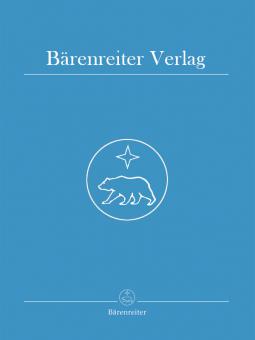Ludwig van Beethoven
Bagatelle in A minor WoO 59 - 'Für Elise'
for Piano
Ludwig van Beethoven
Bagatelle in A minor WoO 59 - 'Für Elise'
for Piano
- Compositor Ludwig van Beethoven
- Editor Mario Aschauer
-
Dificultad
- Editorial Bärenreiter Verlag
- Nº de pedido BA11839
plazo de entrega 1-3 días laborables
IVA incluido.,
Más gastos de envío
No disponible en todos los países. Leer más
Descripción de la:
A number of questions regarding Beethoven's most famous bagatelle, 'Für Elise', remain unanswered until today: What happened to the complete autograph and who was 'Elise'? The bagatelle was written between 1808 and 1810. It was first published in 1867 by the Beethoven scholar Ludwig Nohl who still had access to Beethoven's autograph. What has survived, however, is an extensive autograph draft that Beethoven substantially revised around 1822 for a planned but then unrealised collection of bagatelles and which differs significantly from the known printed version.
The critical edition by the renowned Beethoven scholar Mario Aschauer comes to new conclusions. It offers, in addition to the version of the first printing from 1867, a transcription of Beethoven's draft that makes the changes to the 2nd version visible in grey print as well as a performable completion by the editor of that 2nd version. The work's complicated genesis and source situation are explained in the Preface (Ger/Eng), and in the Critical Commentary (Eng) differing readings and editorial decisions are discussed. This definite edition with historically-informed fingering invites you on an exciting voyage to rediscover this popular piece!
The critical edition by the renowned Beethoven scholar Mario Aschauer comes to new conclusions. It offers, in addition to the version of the first printing from 1867, a transcription of Beethoven's draft that makes the changes to the 2nd version visible in grey print as well as a performable completion by the editor of that 2nd version. The work's complicated genesis and source situation are explained in the Preface (Ger/Eng), and in the Critical Commentary (Eng) differing readings and editorial decisions are discussed. This definite edition with historically-informed fingering invites you on an exciting voyage to rediscover this popular piece!

